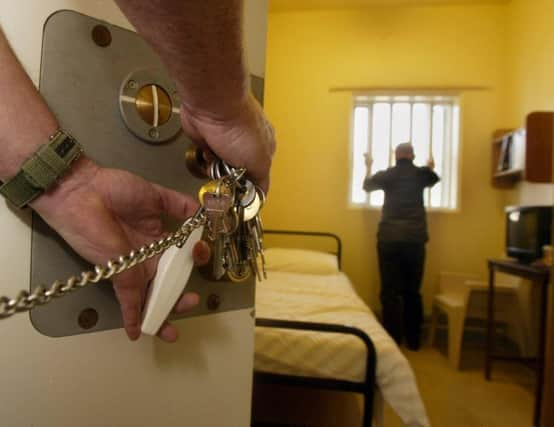Scots need to be ‘reassured’ on plan to end short jail terms


The Scottish Government says shorter sentences serve little purpose in terms of rehabilitating offenders and reducing re-offending and heap the pressure onto Scotland’s overcrowded jails.
MSP’s on Holyrood’s justice committee will hold their first evidence session on the plans, which would extend the presumption against three-month sentences to 12 months.
Advertisement
Hide AdAdvertisement
Hide AdJudges would be required to set out in writing their reasons for imposing shorter sentences.
Justice committee convener Margaret Mitchell said there were “challenges” with shorter sentences.
But she added: “We also know that people want reassurance about public safety, while victim’s concerns must also be taken into account.
“Alternatives to custody are available, but the committee will be keen to explore what impact this measure will have on the availability and effectiveness of those options, if we send fewer people to prison.”
Ministers say the change would mean criminals facing alternative methods of rehabilitation for sentences of 12 months or less, although the number of sentences of less than three months has changed little since the legislation was applied in 2010.
Ministers insist prison remains the right place for those who pose a significant risk to public safety.
The proposed change also met with a sceptical response from Victim Support Scotland, which says it is unlikely to have any impact on sentencing behaviour by judges.
The organisation also questions whether the three-month presumption has been adequate in its “protection of victims, witnesses and families”. It adds: “In cases of domestic abuse and other relevant crimes, custodial sentences can provide victims of abuse with the necessary distance from their abuser to aid the recovery process and to put in safety measures in anticipation of the offender returning to their community.
“Custodial sentences should be imposed when there is a need to protect the public, including the victim, from harm.”